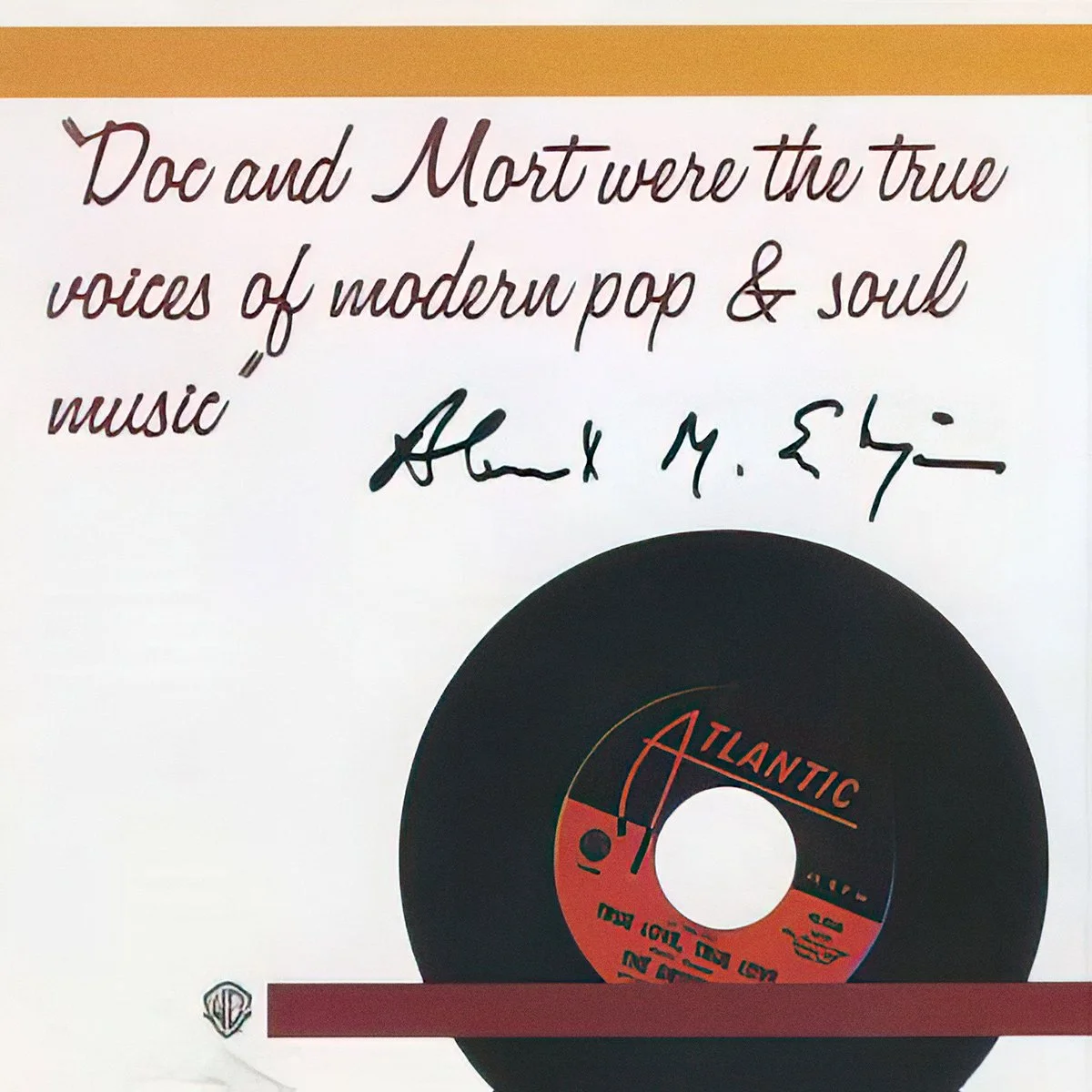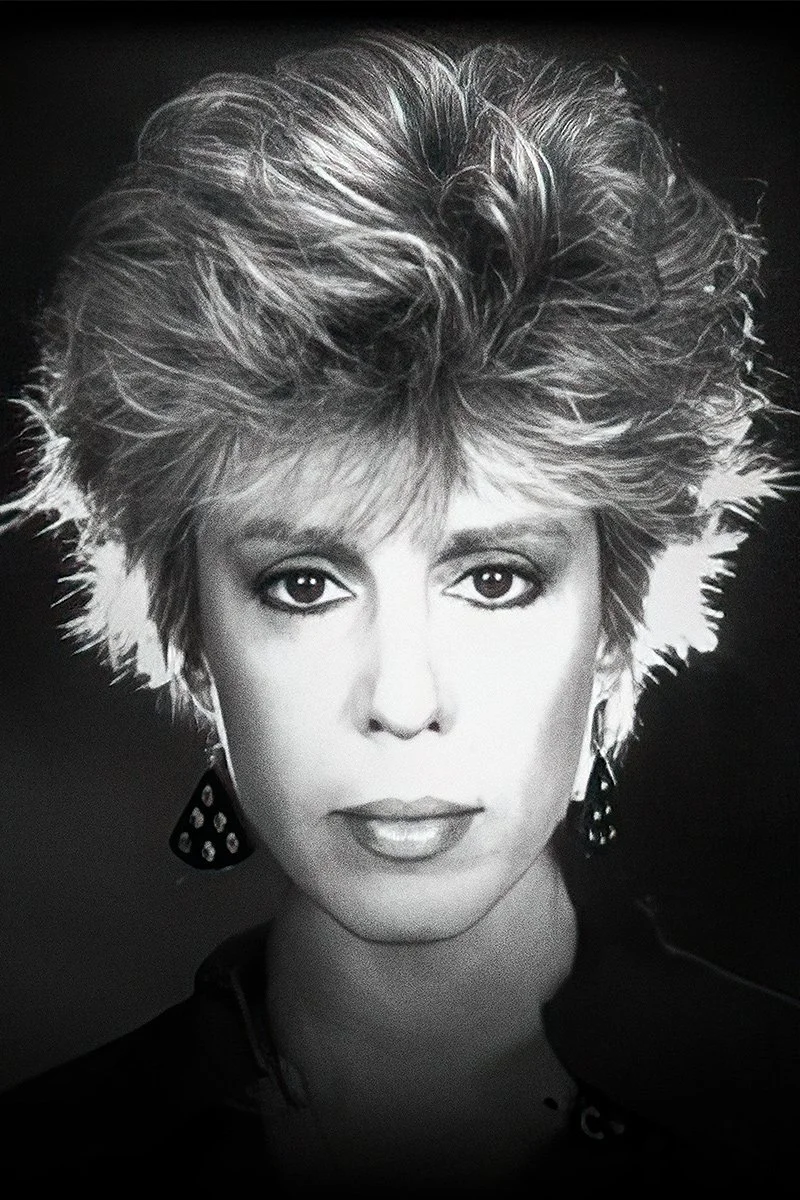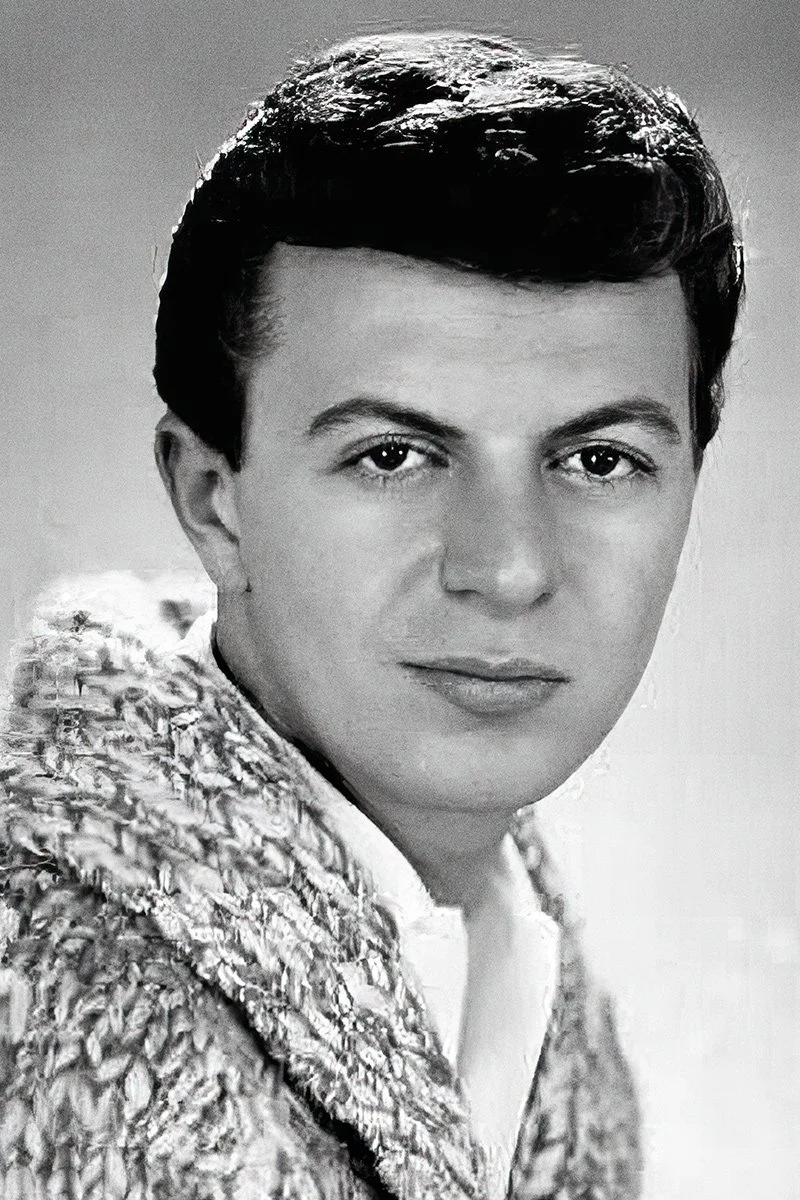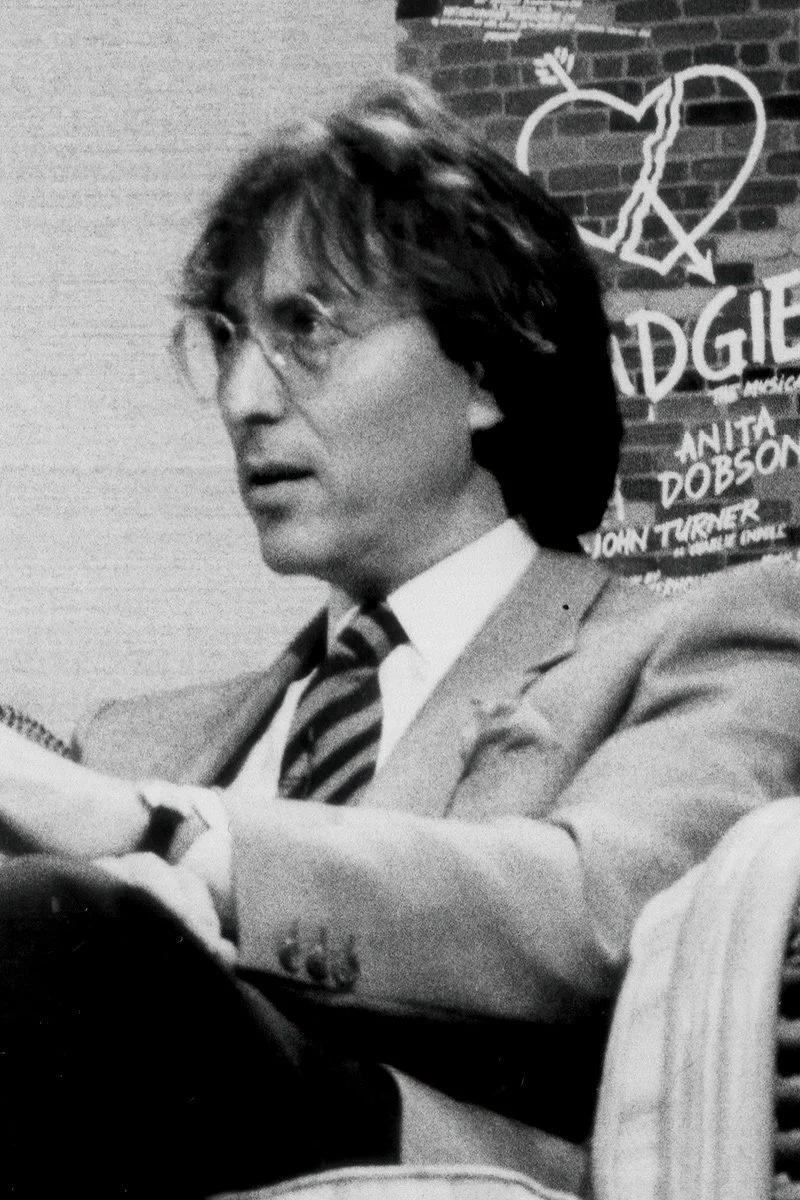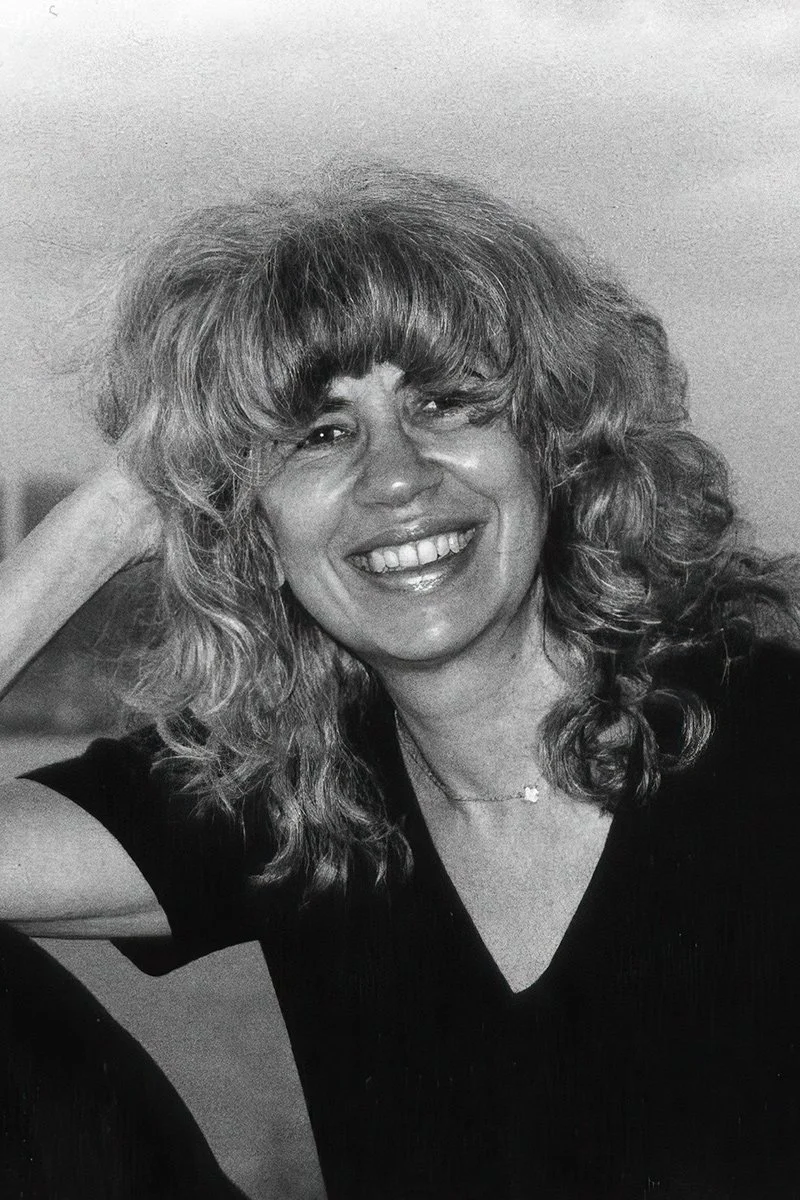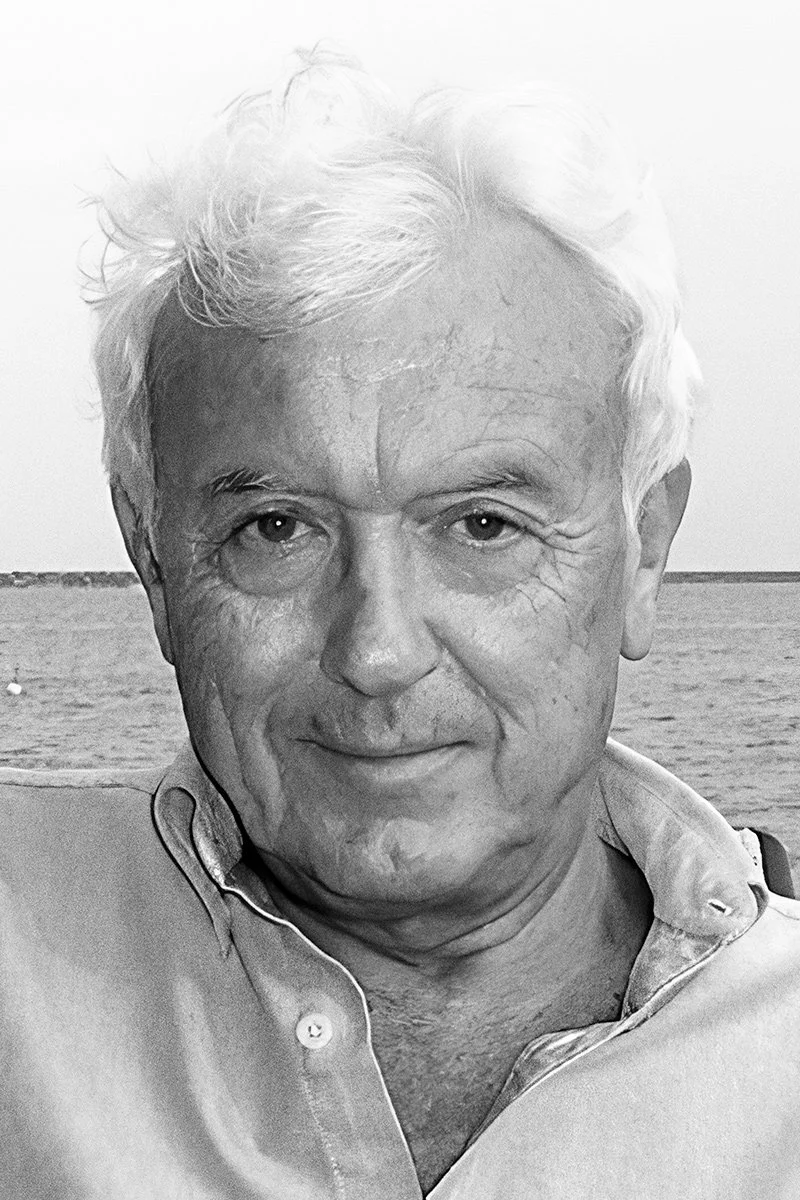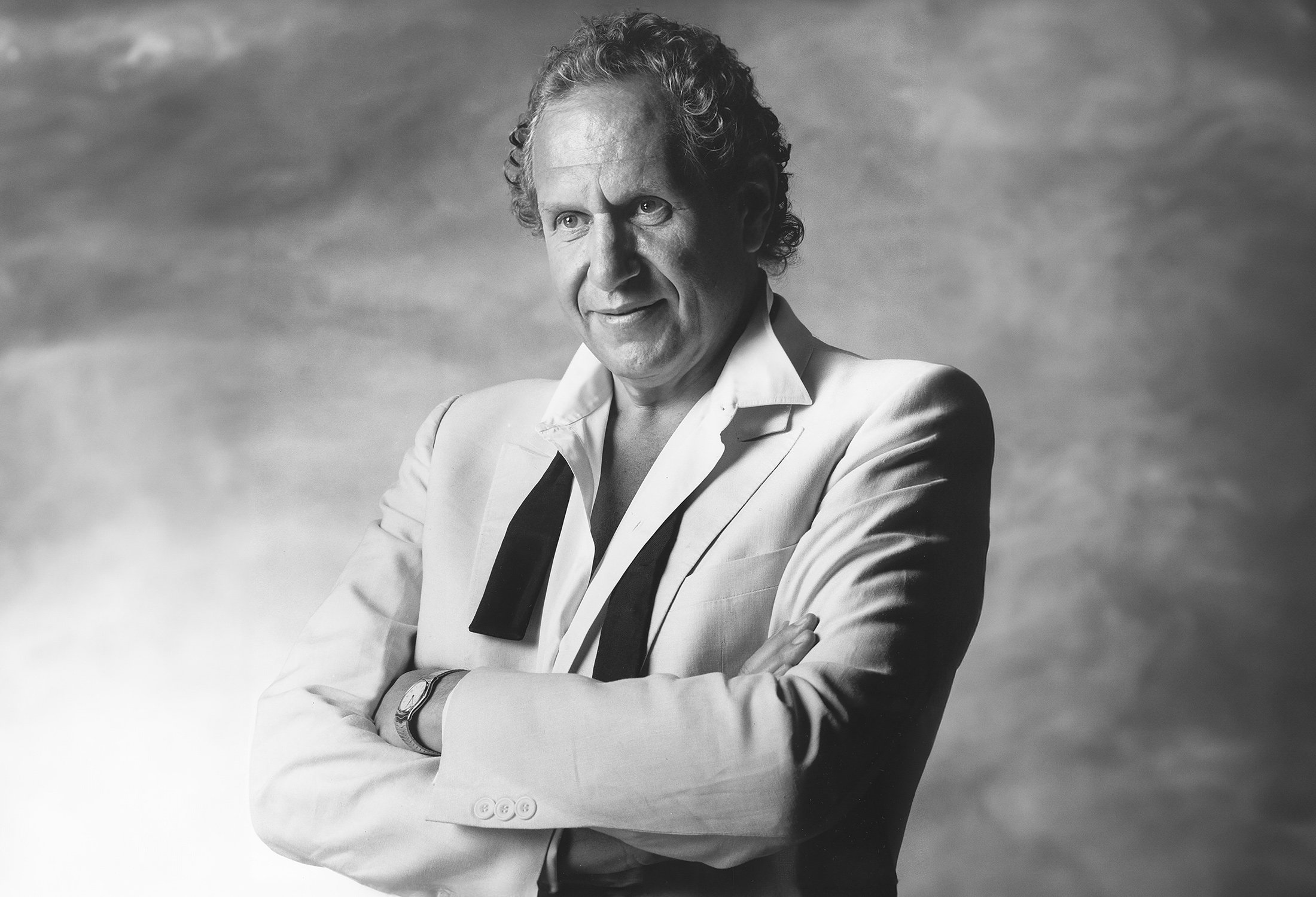
Tributes
Charles Negus-Fancey
Manager
“Mort’s legendary collaborations with Doc Pomus, which captured the innocence and teenage angst of a generation and sold more than thirty million records globally, together with many other hits penned in the UK, one of the longest running off-Broadway musicals in history and a multiple gold disc recording career as an artist in France, would be enough to ensure that Mort will never be forgotten. But for those who knew him, Mort will be remembered for his irrepressible spirit, his passion for life and his kindness. He was quite simply one of the finest human beings I have ever met”
Aaron Schecter
Mort’s New York accountant for many years.
“This story illustrates who, in Mort's mind, his audience was.
On one of our visits to Mort while he was living in Paris, He took us to dinner and then to a club called ALCAZAR. The club presented one show in an evening. It would start at about 11:30 and end up at about one AM. It was an awesome performance by all kinds of acts coming on and off the stage.
I remember one by two male dancers with fans. It began with one man dancing across the stage with the fans for about 5 minutes and then suddenly, in the middle of the stage, you would see two dancers. All that time the other man was behind the first dancer who seemed to be all my himself on the stage.
The three of us had a ringside table and were provided with a never ending supply of Dom Perignon and cigars. Mort was a star. People would come to greet him. He would wave to others. All in French. We didn't understand but we were proud to be at his table. All during the night and while the show was going on, a gentleman dressed in all white tails and tie would circulate through the club. He was Alcazar. He would stop at and shout to the whole room who was sitting there and there would be applause. He would stop several times at our table and announce Mort. In French, he would say something to the audience.
Mort would stand, wave his hand, shake his head and say something. And everybody would applaud. I asked what was up. Mort said "He is trying to get me to perform. Screw him. No way".
The show ended at 1:30,/2:00 and people would stop at our table and talk with Mort. He would say a few words, shake his head, laugh and be gracious. Alcazar sat with us. The place was emptying. The musicians had left and the piano was wheeled out on the stage.
The staff (about 30 men and women, waiters, busboys, etc.) were cleaning the place. The finale of the show was a shower of confetti over the audience.
Mort suddenly got up and went up on the stage. He took off his jacket, removed his tie and sat at the piano. For over an hour, Mort played and sang "jazz".
The waiters and other help put down their brooms and sat at the tables.
Mort said later, He was playing for his audience...”
Ahmet Ertegun
Founder & president of Atlantic Records
“Doc and Mort were the true voices of modern pop and soul music”
Cynthia Weil
1991
"I last spoke to Mort Shuman about a year ago when we were both on a BBC tribute celebrating BMI’s 50th anniversary. Mort was in a studio in London and my husband, Barry Mann and myself were on our phone, at home in California. I reminded Mort of the first time we met, in 1961, in the reception area of Hill and Range. I was a rank Beginner, clutching my demo nervously, waiting to play it for the professional manager and Mort was lounging in a corner, reading a magazine, a guy oozing confidence, a writer with hits under his belt, someone who obviously know the game.
He introduced himself and we started to talk and he calmed me down, made me laugh, filled me in on what I needed to know and gave me a pep talk so that I almost felt a little confidence rubbing off on me. It meant so much to a novice to have that kind of attention from a pro. He wished me luck and I actually got my first advance that day, $50.
Of course, he didn’t remember that moment, but I have never forgotten it and I’m glad I had the chance to tell him and everyone listening to the show that day how much his kindness meant to me. He was a great talent and a true gentleman, a rare combination.
We will all miss him."
Dion DiMucci
Dion and The Belmonts. 1991
"My most vivid memories of Mort Shuman are on those cold winter nights in New York’s Greenwich Village, listening to the Music of Jacques Brel while Morty stood translating his French lyrics into pure American poetry. With an old fedora on his head, a red scarf around his neck and thrown over one shoulder, waving his arms in the air to the dynamics of the Music. He took me on a trip with stories I never heard before.
Morty was the type of guy I loved being with. He was a man of spirit. His imagination, talent and energy could fan into flame a fire that made we want to celebrate life.
He could express himself through a conversation, a Spanish Mountain song, a German folk tune, some French torch, Country or Rock and always filtered through basic Rhythm and Blues. Yet somehow it always came out pure Mort Shuman.
Morty was like a big brother I admired and looked up to. His encouragement, support and friendship is still with me to this day.
I feel blessed that I knew him – I will miss you Morty. Your friend, Dion"
Don Black
BASCA Gazette – MAGIC MAN OF MUSIC. 1991
"Mort Shuman was a big man. So big, in fact, that his towering body housed many musical talents. There was the Nashville Mort, to the manor born in a ten gallon hat, snakeskin boots, picking out tunes on a dented guitar. There was the Parisienne Mort singing songs in French to sophisticated nightclub audiences. There was the Harlem Mort who loved to hang out with black musicians smokin’ and drinkin’ until he dropped. There were many Mort’s, all of them with an unquenchable lust for life and wall with inexhaustible appetites.
As a songwriter his place in history is assured. Together with Doc Pomus he wrote classic rock ’n’ roll and popular music. His most famous song is probably ‘Save The Last Dance For Me’, a hit for the Drifters in 1961. But there were many more. ‘Young Blood’ for the Coasters in 1959, ‘Teenager in Love’ for Dion and the Belmonts in 1960. ‘Little Sister’ for Elvis Presley in 1963. ‘Cant Get Used To Losing You’ for Andy Williams in 1969.
Mort wrote 24 songs for Elvis Presley but he also wrote to order for Janis Joplin, Ray Charles and Fats Domino.
He came to live in London in the Sixties and wrote some of his most successful songs. Three of them became number one hits in the UK. ‘Sha La La La Lee’ for the Small Faces, ‘Love’s Just A Broken Heart’ and ‘What Good Am I ? ‘ for Cilla Black. He also gave us ‘Little Children’ a huge hit for Billy J Kramer and ‘Sweets For My Sweet’ for The Serachers.
During a weekend in Paris in the late sixties Mort discovered one of France’s great poet singers, Jacques Brel. Mort translated thirty of his songs and created the off-Broadway musical, ‘Jacques Brel is Alive and Well and Living in Paris’. The show remains one of the three longest running musicals in off-Broadway history and is often performed in many other capital cities around the world.
Having moved to France he became one of France’s most popular personalities, both as a performer and composer, with the five Gold Albums and over fifteen film scores to his credit.
It was an honour to know him. He was flamboyant, larger than life, witty, generous, warm, caring and he relished every moment of his all too brief 52 years on this earth.
If there is, as he liked to believe, a rock ‘n’ roll heaven, Mort with the big man playing a goose-bump riff on a beer-stained upright; puffing on a strong French cigarette and a case of the finest Dom Perignon within smiling distance."
Eleanor Bergstein
New York City. 1992
"Mort was my new friend, my dear friend, my deeply loved friend. He barrelled into the lobby of my hotel two years ago, smiled at me, and from that moment he was a steady stream of support, humor, advice, friendship and sweetness of soul.
He came that day to take me to lunch, as we had just met, we caught each other up on our past lives. And what I thought was how many lives he had already lived – each with total vigor, verve, amazement and innocence – as if her were the first person in creation to ever lead such a life.
He told me about Maria Pia, and his wonder that a woman so incredibly beautiful, intelligent and sweet dispositioned could love someone like him – and then confessed, rather bashfully, that love him, she truly did.
So Mort laid out his life for me – his beloved children, his plans, his music, his history and his future – and what a life of endlessless possiblility and blessings it had been and still was.
He called me his cousin – two unlikely New York kids living in London – and he was my true friend.
When I didn’t like my hotel, he and Maria Pia drove me to every possible hotel in London, where Mort insisted on walking me grandly through each lobby and the dining room to see if the ambience pleased me – pointing out the Ritz had too much traffic out the door, though the lobby was quite fine, etc…
And when my husband and I took an anniversary trip to Paris, Mort biked over to me a list of his beloved Parisian restaurants with which dishes we should order, which wine to try and how to pronounce ‘Shumann’ should we wish to use his name with the captain – which indeed we did. He suggested we select two or three restaurants from the five page list – but to his professed alarm, we went to almost every one - two a day when necessary, and tried all the dishes and all the wine, and of course said Mort Shumann had sent us, if for no other reason than to experience the smiles of joy when people inquired about him.
But that was what it was like to have a friend like Mort. You’re not biked over a five page list of life’s delights to try only a few. That wasn’t the way Mort came at the world – he tasted all its pleasure and urged others to do the same. That’s what knowing Mort teaches us and will remain as his urgent legacy to me – to seize everything wonderful and give it back with such love and precision and intensity.
I mourn Mort and I will love and miss him forever. The last time I saw him he was in hospital marvelling over how much his doctors and nurses knew and studying up on all his treatments and what they met
I celebrate Mort. This kind of man will not come again. But through the grief and sadness and loss, I think first of lovely Maria Pia and of the children and then all of us, because the extraordinary blessing of knowing Mort is that he will always be there with us and for us, presiding over our lives, and urging us to live them as gloriously as he lived his.
Eric Blau
"ONE MORE……
I can hear the music, Mort
The air is filled with tones.
I can hear the tones you sing
In those eternal studios
Where the choir, in its funny robes,
Doesn’t really rock or roll
But stands and waits for us to arrive
And we will come, one by one,
To stand laughing by your side
And we will sing your songs, Mort
And you will keep us all alive…..
See you later, Old Potater.”
Freddy Bienstock
"It was a very sad day when I was informed that Mort Shuman had passed away. I worked with him for over 34 years and he occupied a special place in my heart, not only as an extraordinarily talented songwriter and performer but also as one of the most charming, most amusing and warmest people that I have ever met. Everybody who knew Morty well will miss him as much as I do."
Ray Connolly
Heroes and Villains - The writer Ray Connolly looks back over the rich career of the late Mort Shuman, a songwriter and singer of heroic proportions. Independent Magazine 30 May 1992
"One Monday evening about three years ago a very big New Yorker came to my house, made his way towards the piano and sat down to play and sing a song he had just finished. It was called “I Want My Own Life” and the man’s name was Mort Shuman.
As he played, my daughter and one of my sons lingered in the doorway to listen. Mort Shuman didn’t know, but they did: this was a big moment in their father’s life. Shuman wrote the songs I listened to as I came of age. He put to music my emotional development. In the immediate pre-Beatles era he and Doc Pomus, his first co-writer, composed some of the best songs of the early Sixties. There was “His Latest Flame”, “Suspicion” and “A Mess of Blues” for Elvis Presley, “Cant Get Used To Losing You” for Andy Williams, and, best of all, “Save The Last Dance For Me” for the Drifters. There were also about 5,000 others: “Sweets for My Sweet”, “A Teenager in Love”, “Little Children” – numerous hits.
There is no currency quite like the successful popular song. At its best it is immediate in the emotions it touches, timeless in its appeal and universal in its acceptance. Wherever Mort Shuman went in the world he was certain to hear one of his songs – on the radio, in lifts, in bars and on aeroplanes. Almost everyone reading this page today will know at least some of his music.
He was born in Brooklyn in 1938, the son of Jewish immigrant parents from Eastern Europe, and, although classically trained (“I think my mother must have seen Carmen at least 35 times”), began writing pop songs while still at school. In his late teens he was introduced to Doc Pomus, who was in a wheelchair as a result of childhood polio, and for the next six years they wrote songs for the best of that generation of American performers Pomus writing the lyrics and Shuman composing the melodies.
In the early sixties Mort Shuman always saw beyond the 12 bar blues riff which was being turned into rock and roll all around him. He liked melody and was fascinated by the Latin American rhythms which he would hear in dance halls in the Spanish-speaking quarters of Manhattan. The influence of South American rhythms can be heard in much of the music of the time.
In the mix-Sixties he moved to England and adapted his style to suit the new British acts who followed in the Beatles wake, but his career changed again in 1968, following a holiday in France, he and the poet, Eric Blau adapted 30 songs by Jacques Brel to create the off-Broadway musical, JACQUES BREL IS ALIVE AND WELL AND LIVING IN PARIS.
It was during the London run of the show that I met him for the first time. He was a vastly larger-than-life character. He was my hero then, as Jacques Brel was his. “I think you could say that I’m really just the midwife to Brel’s music” he told me. The delivery was successful, and produced more hits: MATHILDE and JACKIE for SCOTT WALKER. “IF WE ONLY HAVE LOVE” for DIONNE WARWICK.
By now he was in love with France and moved there to begin a third career, composing 15 French films scores and writing and performing songs in French. In France everyone knows his name.
A few years ago, wanting a career writing musicals, he returned to London and wrote BUDGIE, from a book by Keith Waterhouse and Willis Hall. But it was not a success; meanwhile, the show he and I planned never got off the ground, and after about a year working together we went our separate ways.
Las November, after a short illness, he died of cancer. Doc Pomus, whom you used to regularly carry up the stairs of the Brill Building in New York when they were working there together, had died earlier in the year.
So why is Mort Shuman my hero? It could be, but it isn’t, just for the songs he gave us. There was something more than that. Morty actually had a feel-good quality. No one ever left him not feeling better for the world. He never whinged. He enjoyed life, being a total enthusiast and optimist, and he loved his work. “Lets face it, we ain’t exactly making noive gas here” he would say of his songs, exaggerating a Brooklyn accent.
Morty always had a good time, wanting and getting the best of everything. He could recommend the best restaurants and bars in every capital city of Europe. He loved Europe, speaking French with only the slightest trace of an accent, and also German, Spanish and Italian. He knew so much about art, music, theatre, history and football.
He may have enjoyed life too much. He was once a drinker, but in his last few years was strictly under doctor’s orders; he took pleasure in buying expensive wines for his guests so that they could enjoy what he was forbidden. “It’s good isn’t it?” he would say, having spent an eternity perusing the wine list. “Enjoy it for me”.
He died a comparatively young man, of an illness he had kept secret, leaving three daughters. “He had a wonderful life” his widow told me recently. “He was rich in himself”. To get the most out of everything without hurting anyone else is no bad life."

